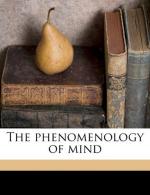|
This section contains 415 words (approx. 2 pages at 400 words per page) |

|
Pleasure and Necessity Summary and Analysis
This section also begins with a note from the translator. These show in the text simply as a short essay printed in a different font. In this case, Hegel's cultural and historical context have exerted a potent impact on what is covered by the text. The era was heavily influenced by the Romantic school of thought. In this case, the exemple Baille uses is Rousseau. In the German speaking world, Goethe's book Werther was renowned. In addition to Romanticism, the literary culture was also inculcated with Sentimentalism's influence. For these reasons, Baille informs readers that what follows is in some respect a study of Hedonism.
Hedonism has held a place culturally and religiously throughout history. In some cases, there has been strong support for pleasures of widely diverse kinds and for the mental states that result from...
(read more from the Pleasure and Necessity Summary)
|
This section contains 415 words (approx. 2 pages at 400 words per page) |

|




